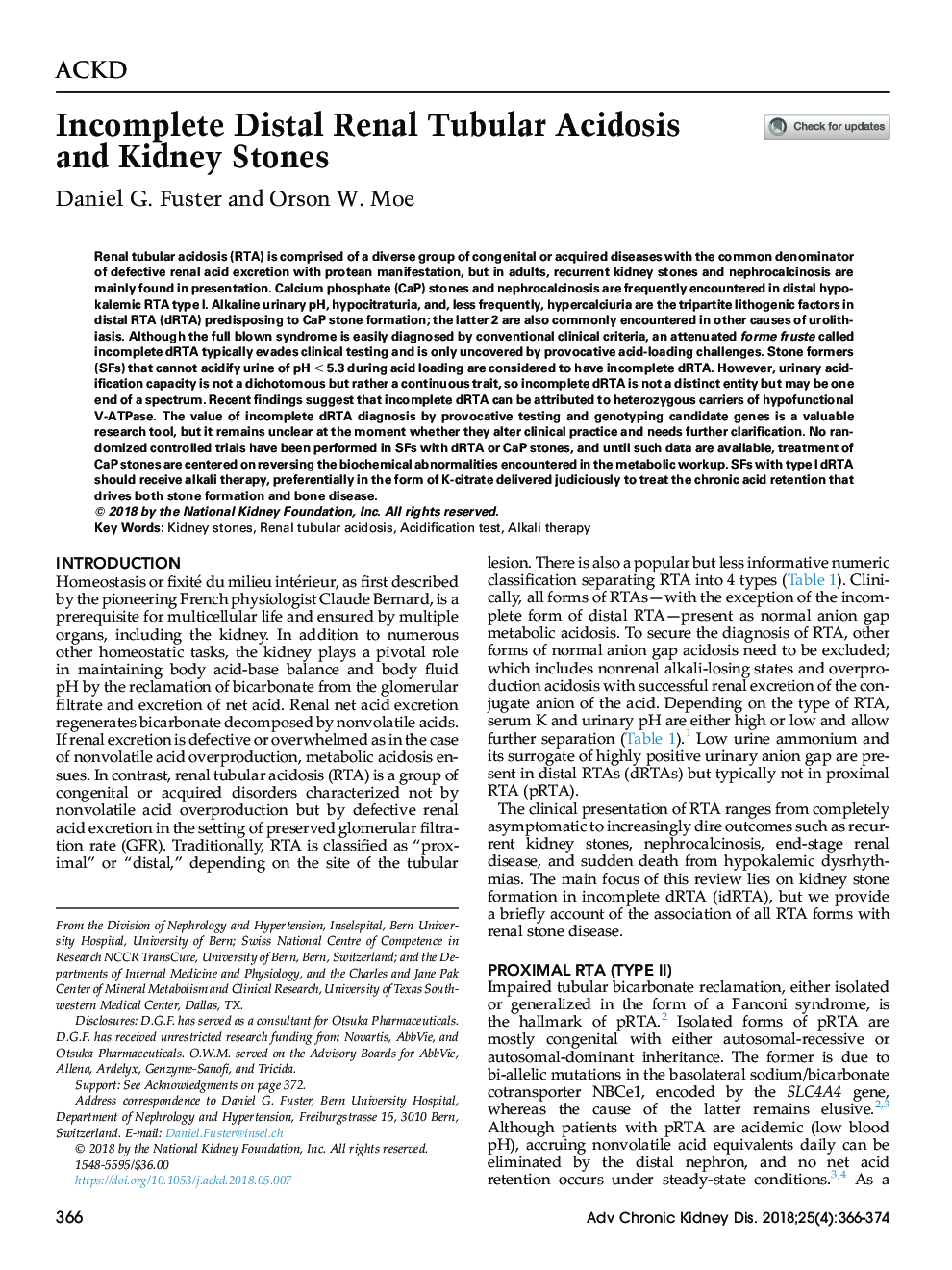| کد مقاله | کد نشریه | سال انتشار | مقاله انگلیسی | نسخه تمام متن |
|---|---|---|---|---|
| 8952320 | 1645857 | 2018 | 9 صفحه PDF | دانلود رایگان |
عنوان انگلیسی مقاله ISI
Incomplete Distal Renal Tubular Acidosis and Kidney Stones
دانلود مقاله + سفارش ترجمه
دانلود مقاله ISI انگلیسی
رایگان برای ایرانیان
موضوعات مرتبط
علوم پزشکی و سلامت
پزشکی و دندانپزشکی
بیماریهای کلیوی
پیش نمایش صفحه اول مقاله

چکیده انگلیسی
Renal tubular acidosis (RTA) is comprised of a diverse group of congenital or acquired diseases with the common denominator of defective renal acid excretion with protean manifestation, but in adults, recurrent kidney stones and nephrocalcinosis are mainly found in presentation. Calcium phosphate (CaP) stones and nephrocalcinosis are frequently encountered in distal hypokalemic RTA type I. Alkaline urinary pH, hypocitraturia, and, less frequently, hypercalciuria are the tripartite lithogenic factors in distal RTA (dRTA) predisposing to CaP stone formation; the latter 2 are also commonly encountered in other causes of urolithiasis. Although the full blown syndrome is easily diagnosed by conventional clinical criteria, an attenuated forme fruste called incomplete dRTA typically evades clinical testing and is only uncovered by provocative acid-loading challenges. Stone formers (SFs) that cannot acidify urine of pHÂ <Â 5.3 during acid loading are considered to have incomplete dRTA. However, urinary acidification capacity is not a dichotomous but rather a continuous trait, so incomplete dRTA is not a distinct entity but may be one end of a spectrum. Recent findings suggest that incomplete dRTA can be attributed to heterozygous carriers of hypofunctional V-ATPase. The value of incomplete dRTA diagnosis by provocative testing and genotyping candidate genes is a valuable research tool, but it remains unclear at the moment whether they alter clinical practice and needs further clarification. No randomized controlled trials have been performed in SFs with dRTA or CaP stones, and until such data are available, treatment of CaP stones are centered on reversing the biochemical abnormalities encountered in the metabolic workup. SFs with type I dRTA should receive alkali therapy, preferentially in the form of K-citrate delivered judiciously to treat the chronic acid retention that drives both stone formation and bone disease.
ناشر
Database: Elsevier - ScienceDirect (ساینس دایرکت)
Journal: Advances in Chronic Kidney Disease - Volume 25, Issue 4, July 2018, Pages 366-374
Journal: Advances in Chronic Kidney Disease - Volume 25, Issue 4, July 2018, Pages 366-374
نویسندگان
Daniel G. Fuster, Orson W. Moe,